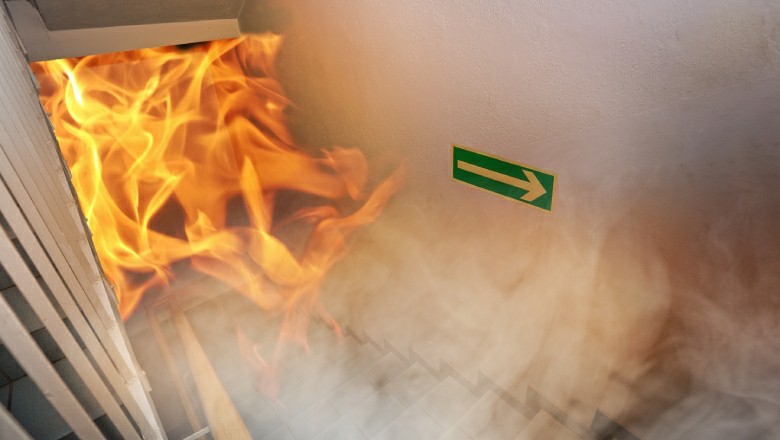Fire Safety Certification: Your Essential Guide to Workplace and Home Fire Prevention in Dublin, Cork, Galway, and Beyond
Introduction: Why Fire Safety Certification is a Legal Requirement in Ireland
In Ireland, ensuring the safety of employees, clients, and residents is paramount, making Fire Safety Training a crucial aspect of workplace and home safety. With a history of devastating fires across various sectors, Ireland has established robust fire safety regulations that apply to businesses in Dublin, Cork, Galway, Limerick, Waterford, Belfast, and beyond. Understanding these regulations and implementing effective fire safety measures is not just a legal requirement; it's a fundamental responsibility.
What is Fire Safety Training? Understanding Fire Prevention and Risk Reduction
Fire Safety Training equips participants with the knowledge and skills to prevent, respond to, and manage fire emergencies effectively. This includes:
- Identifying fire hazards: Recognizing potential fire risks in the workplace or home.
- Implementing fire prevention strategies: Learning best practices to minimize fire hazards, including proper storage of flammable materials.
- Emergency response planning: Preparing employees and residents to act swiftly and effectively in case of a fire.
The Benefits of Online Fire Safety Certification for Businesses and Individuals
Investing in fire safety certification offers numerous advantages:
- Legal Compliance: Meeting the requirements of Irish fire safety legislation fosters a culture of safety and compliance.
- Improved Safety Awareness: Employees and property owners become more aware of potential fire hazards and how to mitigate them.
- Enhanced Emergency Preparedness: Proper training ensures that individuals know how to act during a fire emergency, potentially saving lives.
- Reduced Risks: Implementing fire safety measures significantly lowers the chances of devastating fire incidents.
How to Get Fire Safety Certified: A Step-by-Step Guide for Irish Workplaces
Gaining fire safety certification in Ireland involves the following steps:
- Sign up for a Fire Safety Training Course: Look for accredited courses that offer comprehensive training options online or in person.
- Complete the Training: Participate actively in the training sessions, whether they are conducted online or in a classroom setting.
- Pass the Assessment: Successfully complete any required exams or assessments to demonstrate your understanding.
- Receive Fire Safety Certification: Obtain your certification, which demonstrates your commitment to fire safety in your workplace or home.
Online vs. In-Person Fire Safety Training: Why Online Learning is More Effective
Online Fire Safety Training offers distinct advantages over traditional classroom settings:
- Flexibility: Participants can access training from anywhere at any time, accommodating busy schedules.
- Enhanced Learning Tools: Online platforms typically provide engaging multimedia content, making learning more interactive.
- Convenience: Reduce travel time and costs by participating from your preferred location.
Common Workplace Fire Safety Violations and How to Prevent Them
Being aware of common violations can drastically improve workplace fire safety:
- Blocked Exits: Ensure all exits are clear and easily accessible at all times.
- Improper Storage: Store flammable materials in designated areas and comply with safety guidelines.
- Lack of Fire Drills: Regular fire drills help reinforce training and ensure everyone knows their roles during emergencies.
How Fire Safety Training Enhances Emergency Response Planning and Employee Safety
Fire Safety Training is vital for developing effective emergency response plans. It empowers employees to:
- Understand evacuation routes and procedures.
- Identify assembly points outside the building.
- Use fire safety equipment such as extinguishers effectively.
How to Conduct a Fire Risk Assessment and Maintain Compliance
Conducting a thorough fire risk assessment involves the following steps:
- Identify fire hazards: Look for anything that could cause a fire.
- Evaluate risks: Determine the likelihood of a fire occurring and its potential consequences.
- Implement measures: Put in place fire prevention measures and assign responsibilities.
- Review regularly: Reassess fire risks periodically and after any significant changes in operations.
Conclusion & Call to Action: Invest in Fire Safety Training Today
Fire Safety Training is not just a legal requirement; it is a cornerstone of safety in both professional and residential environments across Ireland. By enrolling in a Fire Safety training course, you'll not only comply with regulations but also foster a safer work culture. Take the first step towards safeguarding your business and home by enrolling in a Fire Safety course online today. For inquiries, contact us at [email protected].



 349,500 Offered Certificates
349,500 Offered Certificates
 24/7 Online Training
24/7 Online Training
 Money Back Guarantee
Money Back Guarantee
 Fully Accredited Courses
Fully Accredited Courses
